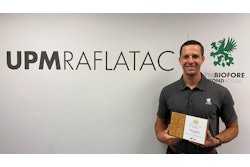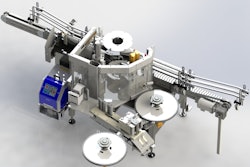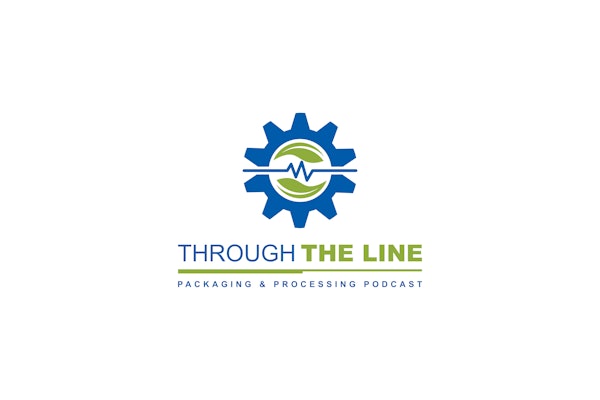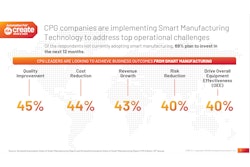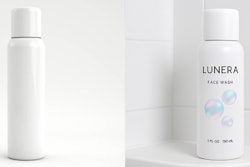Nowadays, if they did that, they would see that we’re very interested in products that are natural, organic, and, increasingly, “Made in the USA.”
As a packager, you may have made the claim on your labels, or had the unwelcome experience of discovering a competitor’s label claims of origin that you suspect are false.
The Federal Trade Commission, whose job is to protect consumers from false or deceptive labeling and advertising, has proposed new regulations to clarify when you can and can’t lawfully make that claim. Those rules could add protection for American makers against unfair competition, especially given the fact that violators would now be subject to hefty monetary penalties. And yet, the proposed regulations wouldn’t make a big change from prior FTC policy.
Most American consumers want to support American businesses, so the Made in USA claim can be very relevant to their purchasing decisions. Recently, we have seen how political decisions and pandemics can draw attention to the surprisingly large number of products we buy, including drugs and active pharmaceutical ingredients, that are made elsewhere, and that in turn has led even more Americans and companies to seek American-made products. The thing is, there are often complex international supply chains for products or components or packaging, so it’s not always easy to say simply whether a product is made in the USA.
The shorthand version of FTC’s position has long been that only products that are “all or virtually all” made in the U.S., with no or negligible foreign content, can lawfully make that unqualified claim.
Such unqualified Made in USA claims are the source of most controversies, because “qualified” or explained claims can provide more complete and truthful information to consumers. That’s why you will sometimes see more wordy claims that, to use an FTC example, a couch was “assembled in USA from Italian leather and Mexican frame.”
PACK EXPO Connects–November 9-13. Now more than ever, packaging and processing professionals need solutions for a rapidly changing world, and the power of the PACK EXPO brand delivers the decision makers you need to reach. Attendee registration is open now.
FTC’s proposed rules were published in July and the agency invited public comments to be submitted by September 14. Now FTC is looking over the 842 public comments it received. They’ll then decide if any of the comments offer information or arguments that inspire the agency to make changes to the proposal, or finalize the proposal as is.
The proposed rules would declare as unfair or deceptive the labeling of any product as Made in the United States “unless the final assembly of processing of the product occurs in the United States, all significant processing that goes into the product occurs in the United States, and all or virtually all ingredients or components of the product are made and sourced in the United States.”
Notably, labeling shown in mail order catalogs or promotional materials, which the proposal defines to include materials disseminated by electronic means, that is, online sales, would have to comply with those requirements, too. Violators of the regulations would be subject to hefty monetary penalties.
The proposal is short (only five brief regulatory sections) and so seemingly simple, it might not be surprising that during a public workshop on this topic, “stakeholders expressed nearly universal support” for the agency to make a rule on this topic, the FTC says.
However, there has been controversy within the FTC itself. One of the five commissioners, Noah J. Phillips, voted against publishing the proposed rule, saying it exceeded the agency’s legal authority to regulate the information on labels, and another commissioner, Christine S. Wilson, said in early October, she “supports the FTC’s enforcement of deceptive Made in USA claims,” but similarly “ thinks the proposed regs” exceed the FTC’s legal powers over labels.
Three more points of interest about this proposal:
First, you might remember a couple of years ago that the Trump administration announced a new policy that federal agencies had to eliminate two old regulations for every new one they make. No such elimination accompanies this FTC action, because, FTC says, independent agencies like FTC are not covered by the new policy.
Second, given what FTC describes as the nearly universal public support of stakeholders, any changes to the proposal when it’s made final would be a surprise, but a legal challenge to the final rule over the question of FTC’s legal authority to apply these rules to online sales would not, given the doubts expressed by the commissioners.
Third, another source of controversy could come from the interaction of the FTC proposal and the approaches of other federal and state regulators. In the proposed regulation, FTC says they don’t want the new rules to “be construed as superseding, altering, or affecting any other federal statute or regulation relating to country-of-origin labeling requirements.” When they wrote that, FTC likely had in mind the country of origin labeling, or COOL requirements, which themselves have been the subject of a fair amount of controversy over the U.S. Department of Agriculture’s approach, which allows imported meats that are processed here to be called a “Product of USA.”
And yet, some commenters on the FTC proposal were U.S.-based meat producers who do want FTC to help crack down on Made in USA label claims on imported meats processed here. The proposed rule also says that any State’s requirement that is more protective of consumers than the new federal rules won’t be considered inconsistent with them. Phrases like “more protective” and “inconsistent” are essentially magnets for legal disagreements.
For such a simple-sounding rule with such widespread support, the future could nevertheless hold some U.S.-made controversies.
Eric Greenberg can be reached at [email protected]. Or visit his firm’s Web site at www.ericfgreenbergpc.com.
INFORMATIONAL ONLY, NOT LEGAL ADVICE.




